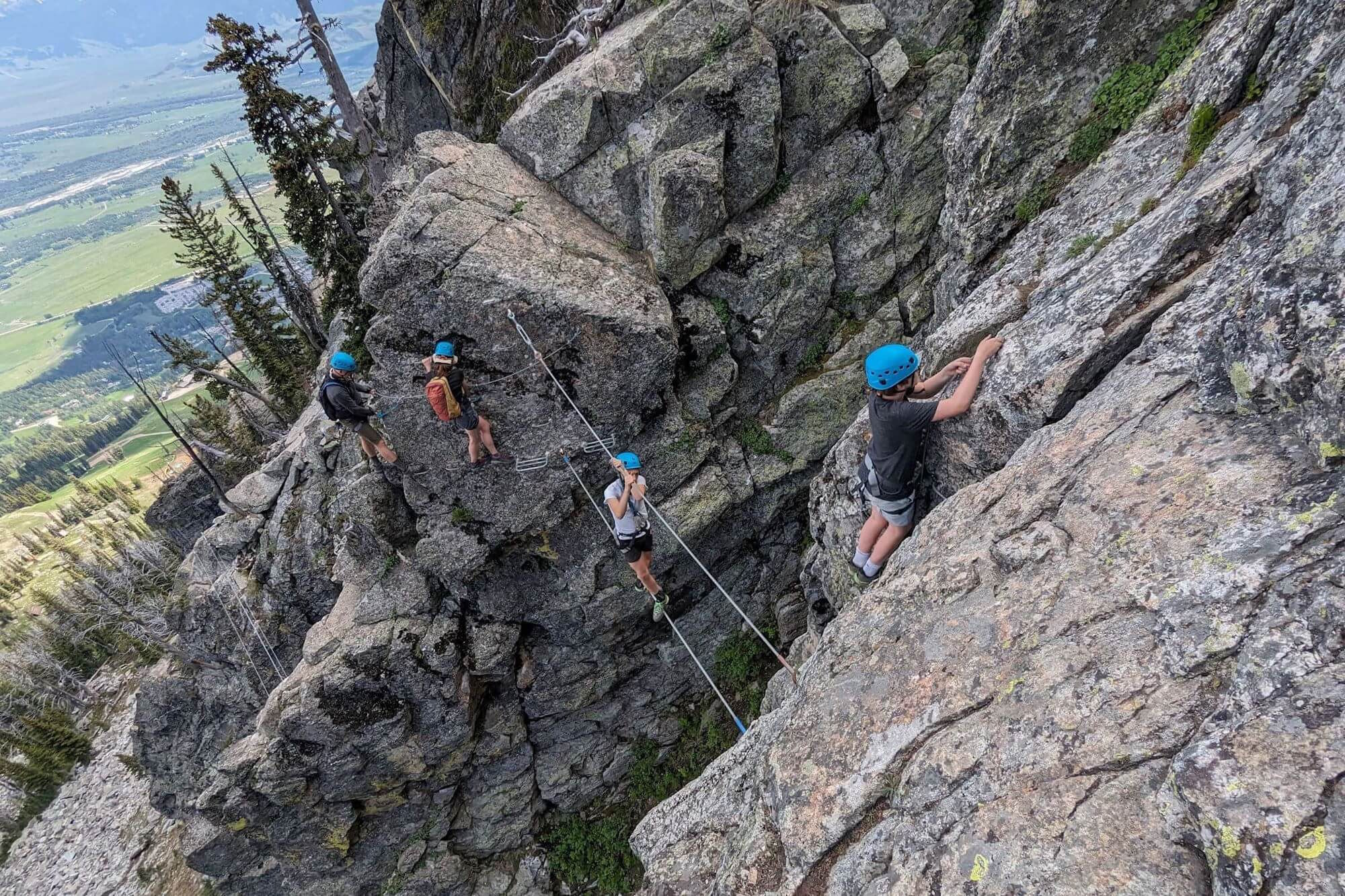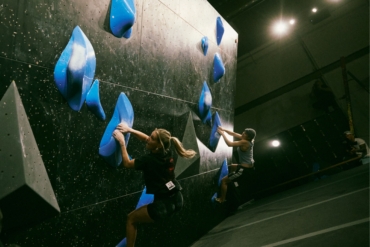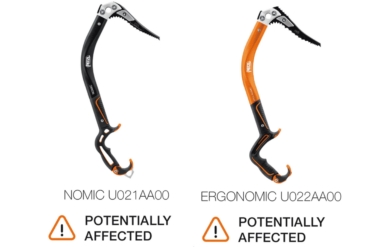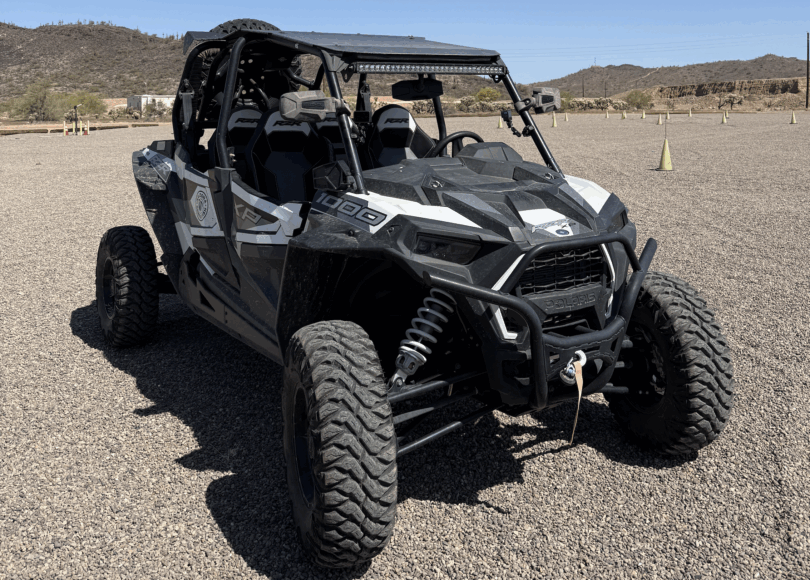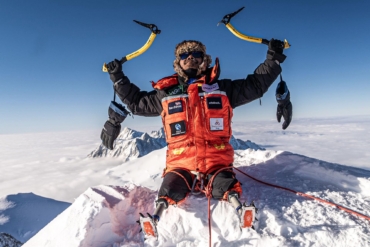It’s a crisp July morning in Jackson Hole. My kids are lined up at the base of a cliff, helmets on, and ready to climb.
“You clip the cable and just go,” our guide explains. A set of ladder rungs snakes 50 feet skyward, disappearing around a bend.
I’d booked a half-day excursion to show my kids the proverbial ropes in the shadow of Grand Teton. We jumped on a gondola to get to the base of the cliff. For the next 2 hours, a vertical adventure would unfold above 9,000 feet.
Via Ferrata: Strange Origins
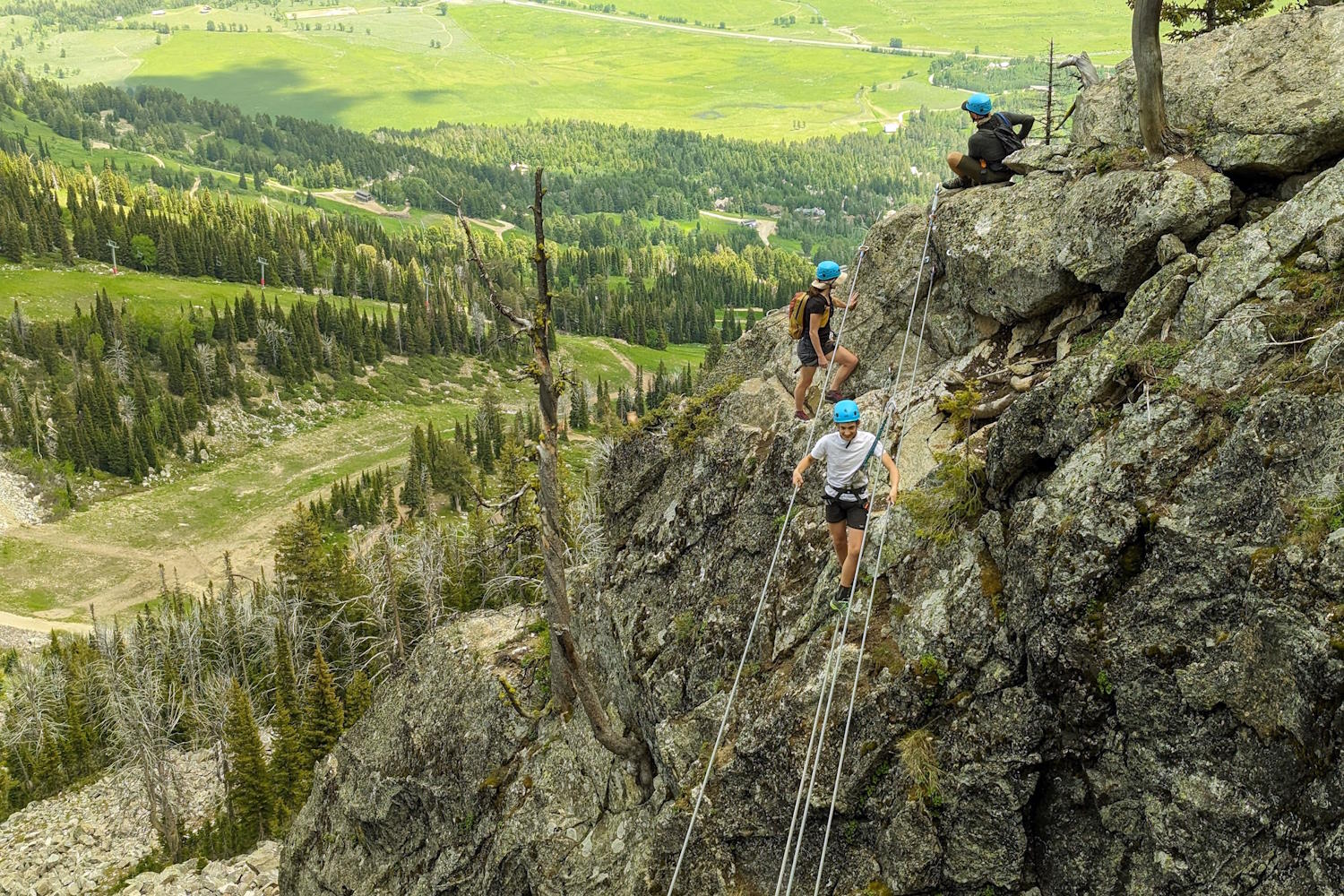
As outdoor activities go, via ferrata has an unusual history. It was invented in Europe during World War I as a military method of moving over steep terrain. Italian for “iron way,” the no-ropes-required routes involved bolts, steps, cables, and ladders drilled and affixed to cliffs across the Alps.
After the war, it became recreational. Tourists without mountaineering ability could access peaks and stark limestone faces in the Dolomites and beyond.
Today, you can’t spit without hitting one in the Alps. Over the years, I have clipped into the via ferrata “iron way” in Austria, Switzerland, Germany, and France. The routes are easy from a technical standpoint, with minimal gear required to access great heights.
In America, the cable-protected climbs are becoming more common. They have popped up in recent years in West Virginia, Kentucky, and around the American West.
At the start of my career, in 2006, I was sent by the New York Times as a young journalist to cover the trend. My story, “Hit the Heights, but Take the Stairs,” documented a 350-foot cable line installed in the Wasatch over Ogden, Utah.
Jackson Hole Mountain Resort jumped on the via ferrata train in 2018. The resort built its cliffside courses with an eye on engaging visitors after the snow melts.
Last year, the company added a suspension bridge and two advanced routes. It all opens for the 2024 season this month, along with nearby alpine hiking trails and a new “skywalk” viewing platform attraction at the top of Rendezvous Mountain high overhead.
Time to Climb
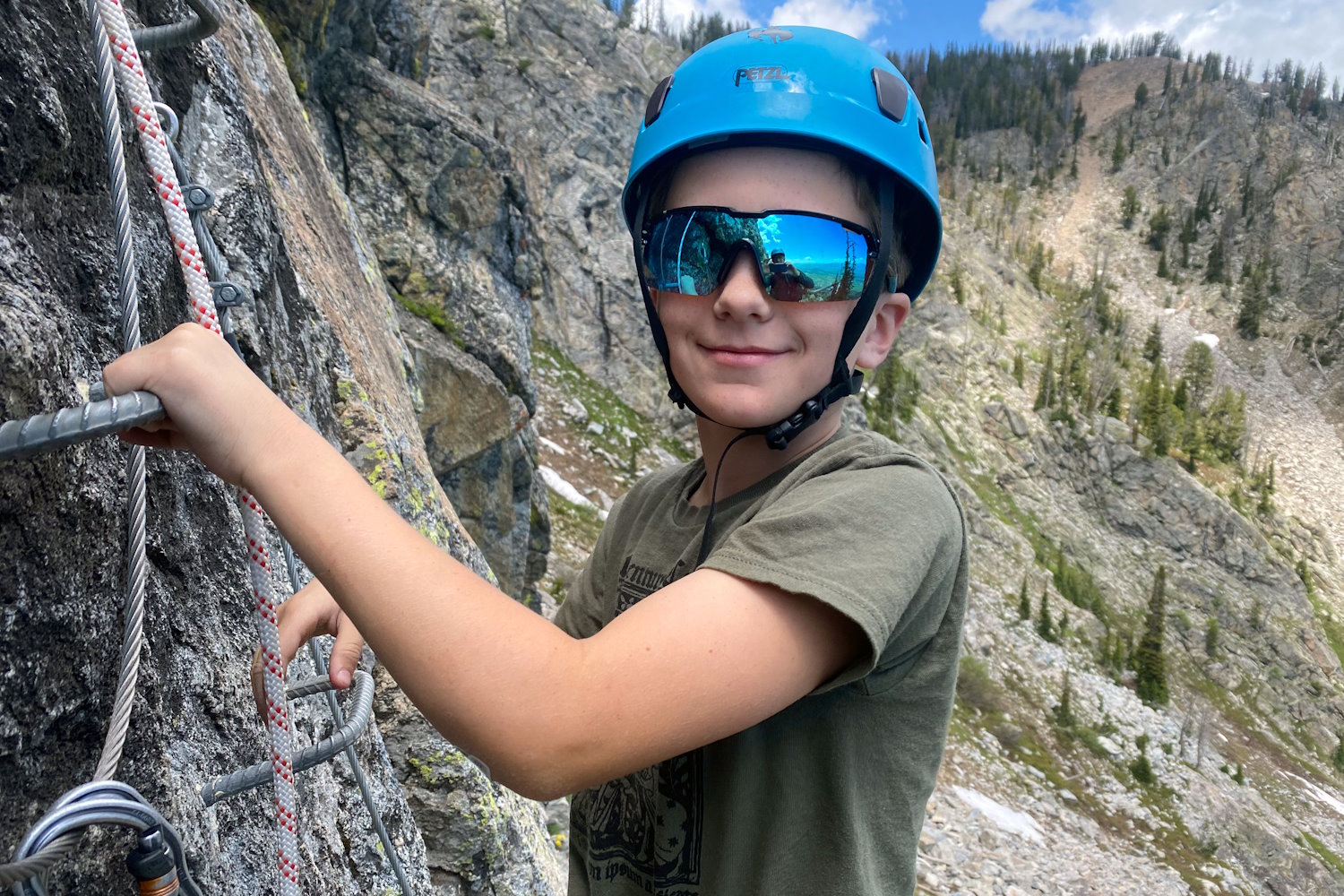
Guides are required at Jackson Hole. You meet them at a chalet halfway up the mountain, gearing up before a short hike to the base of the cliff.
My kids squinted at the vertical face. Our guide gave the lay of the land. “It gets steep right away,” he said, pointing to the first pitch. “The cable keeps you safe.”
In the climbing world, via ferrata can fall toward the “tourist” end of the spectrum. Granted, some routes are challenging and extreme. Others feel akin to a summer camp ropes course anyone can complete.
Jackson Hole’s premise is somewhere in between. The via ferrata was built on a buttress thousands of feet above the resort base. There are more than a dozen lines to the top, from easy to advanced.
It’s an approachable adventure led by a guide. Which is to say, it’s perfect for kids or anyone wanting to dip a toe into mountaineering and multipitch climbs.
A True Alpine Experience

My kids boulder at a gym for fun. We top-rope and climb short trad routes on cliffs in Minnesota near home.
Jackson Hole offered a step into the alpine world. Talus, lichen, bright sun, stunted trees, and snow on the ground in July gave a classic mountain feel.
We started climbing close together, waiting on ledges to regroup and keep everyone in line. Two of my kids were gripped, palms sweating on the metal rungs.
A guide led, and one was at the tail. They encourage and instruct where needed but are mostly hands-off; unlike rock climbing, the sport doesn’t require ropework or knots. Kids aged 10 and above are allowed on the routes.
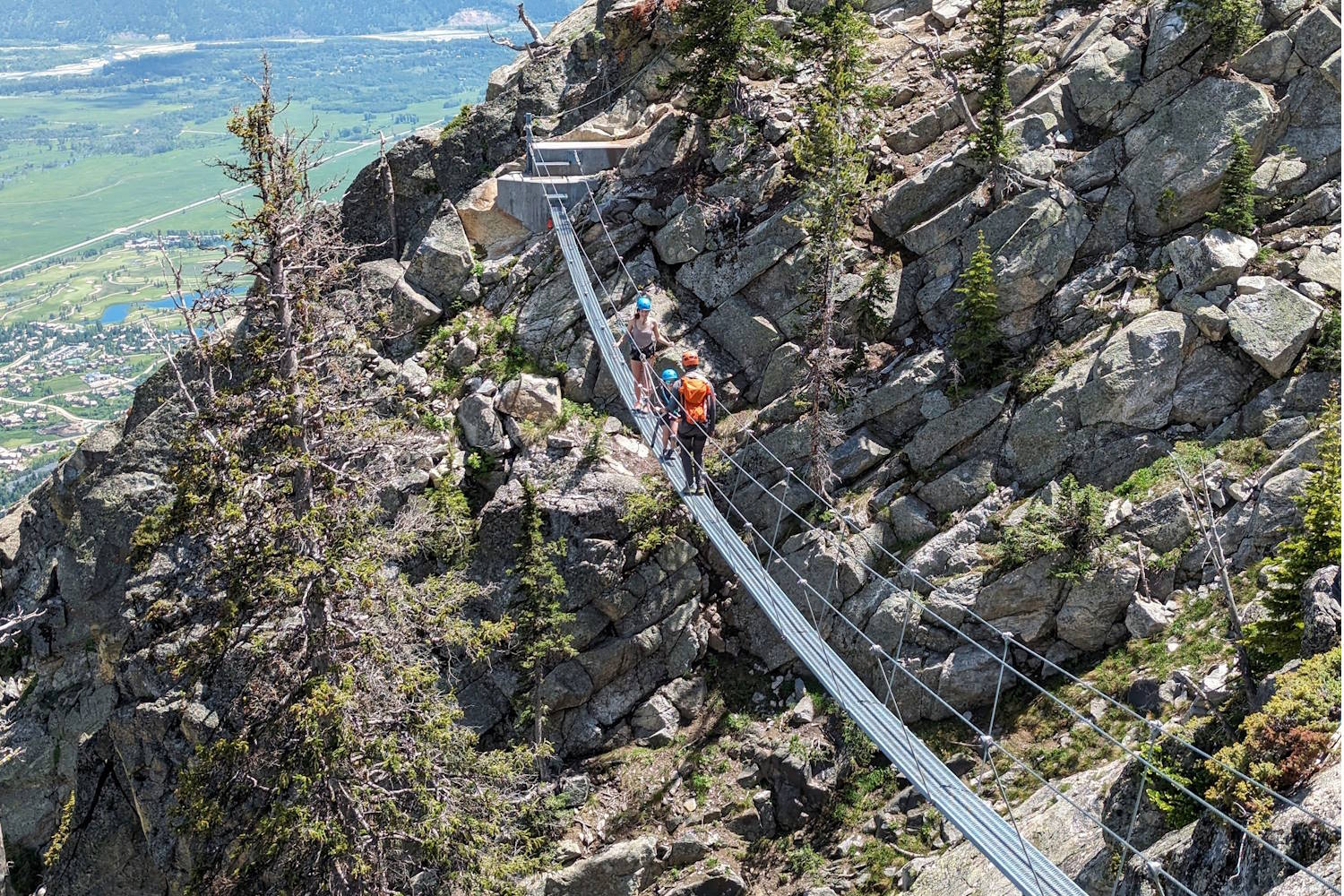
Our more adventurous child swung rung to rung and walked “no hands” across a cable bridge. A set of carabiners trailed behind, clipped in and serving as his belay.
The whole crew hesitated where the rock angle leaned back. There’s always a rung in reach, but the wind picks up as you climb. The air beneath your feet is real, a long way down to the valley floor.
Two hours from the start, we were all on top. The kids were flush with adrenaline from a new experience, some tangible new heights reached on a sunny day in Jackson Hole.
Jackson Hole Via Ferrata: If You Go
- Season: June 15-October 6, 2024
- Tours: Half-day (3 hours) and full-day (6.5 hours)
- Cost: $446 (half-day), $698 (full-day) for two people
- Routes: 17 routes for all skill levels
- Gear provided: Yes
- Bring: Water, snacks, sunscreen, sunglasses, and gloves (optional)
- Group size: Max five per guide
- Age and weight limits: 10+ years, 88-264 lbs.
- Weather: Lightning, thunder, rain, and snow may cause delays
- Guides: All guides are certified in first aid and CPR
- More details: Jackson Hole Via Ferrata
